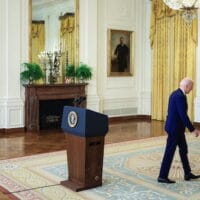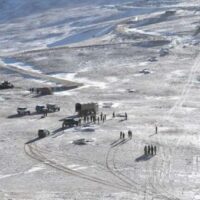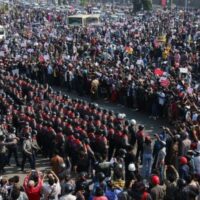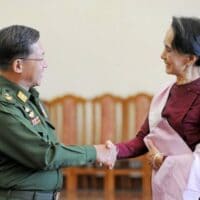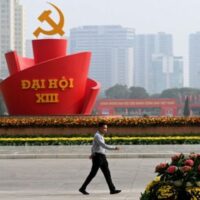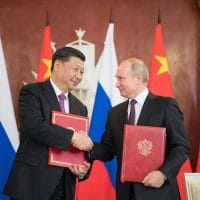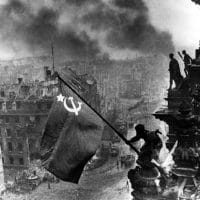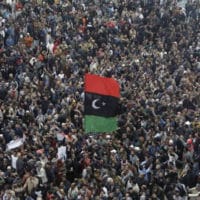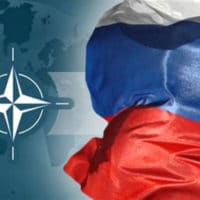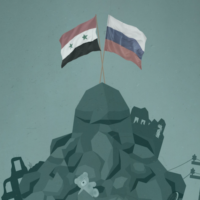-
China on the horizon as ‘world’s pharmacy’
The World Health Organisation’s approval Friday for China’s COVID-19 vaccine known as Sinopharm dramatically transforms the ecosystem of the pandemic.
-
Modi Govt’s vaccine diplomacy unravels—within India and abroad
The German Chancellor Angela Merkel has faulted India for not fulfilling its obligation to supply COVID-19 vaccines to Europe. The Politico paper quoted Merkel as saying, We now have a situation with India where, in connection with the emergency situation of the pandemic, we are worried whether the pharmaceutical products will still come to us. […]
-
U.S. expects Russia to submit. Will it?
In his landmark foreign policy speech delivered from the U.S. state department on February 4, President Joe Biden had proclaimed that “America is back. Diplomacy is back at the centre of our foreign policy.” That maxim was put to test last week. And it failed to make the grade.
-
Frozen conflict is hotting up
The terrible beauty of “frozen conflicts” is that it takes hardly any effort to turn up the heat and re-escalate them into hot violence, but pressing the “pause” button later would need consensus, which is not so easy.
-
Ten years on, Syria is almost destroyed. Who’s to blame?
In George Orwell’s novel Animal Farm, the ruling pigs led by Napoleon constantly rewrote history in order to justify and reinforce their own continuing power. The rewriting by the western powers of the history of the ongoing conflict in Syria leaps out of Orwell.
-
U.S. Exceptionalism Surges Again. Will It Fly?
In a statement marking the “return” of the United States to the United Nations Human Rights Council on Wednesday, Secretary of State Antony Blinken disclosed that the Biden Administration is placing democracy and human rights at the centre of American foreign policy.
-
India’s forever wars and forever warriors
Looking ahead, pre-conditions now exist for a positive turn to the India-China bilateral relationship.
-
U.S. reboots Quad in unseemly hurry
The Japanese news agency Kyodo reported from Washington Sunday quoting “a source” that the Biden Administration had proposed to New Delhi, Tokyo and Canberra the idea of holding an online summit meeting of the leaders of the “Quad”.
-
India needs course correction on Myanmar
The ASEAN Chair’s statement of Feb, 1 recalled the “purposes and the principles enshrined in the ASEAN Charter” which include respecting the principles of sovereignty, equality, territorial integrity, non-interference, consensus and unity in diversity.”
-
China cherishes Hanoi’s nay to ‘Quad’
The 13th national congress of Vietnam’s ruling communist party, which began in Hanoi on Monday is an event of exceptional significance for the country’s internal politics and future trajectory of development, regional politics and the geopolitics of the Asia-Pacific.
-
U.S. makes aggressive opening move on Russian chessboard
A regime change project in Russia was launched on Sunday with the return of political activist Alexei Navalny to Moscow. It was a highly symbolic event—except that Navalny was traveling by an airplane from Germany and not in a sealed train.
-
Germany draws another line in the sand for the U.S.
Maas underscored that Berlin “does not need to talk about European sovereignty if that is understood as us (Germany) doing everything in future the way Washington wants.”
-
India’s farewell to ASEAN as it boards RCEP train
It comes in the specific context of the signing of the Regional Comprehensive Economic Partnership [RCEP] on Sunday—the mega free trade agreement centred on the ASEAN plus China, Japan and South Korea.
-
The Sino-Russian Alliance Comes of Age — Part 3
Soon after becoming the general secretary of the Chinese Communist Party, Xi Jinping is known to have spoken about the former Soviet Union. The first time was in December 2012, when, in comments to party functionaries, he reportedly remarked that China still had to “profoundly remember the lesson of the Soviet collapse.”
-
The Sino-Russian Alliance Comes of age — Part 1
The joint statements between two countries are usually riveted on a particular event but in extraordinary circumstances involving great powers, it could assume an epochal character and can be viewed as diplomatic communication that reflects what the Germans call the zeitgeist
-
Turkey’s big bet has put Libya in center of a global power struggle
The series of debilitating military setbacks that Libya’s renegade general Khalifa Haftar suffered in recent months have spurred diplomatic activities over the conflict in the country. But the war is far from over.
-
NATO returns to Libya to challenge Russia
The great game in Libya has begun surging with the United States shedding its strategic ambivalence and resorting to a proactive role. At the end of May, the Pentagon marked a dramatic escalation by accusing Moscow of bolstering “Kremlin-linked mercenaries” who are allegedly helping Khalifa Haftar, the eastern warlord in Libya.
-
How Russia is botching its alliance with Syria
Russia’s relationships with its client states have never been easy. Of course, managing client states is always a complicated exercise. The Kremlin’s cupboard is full of skeletons—Hungary (1956), Czechoslovakia (1968), Cuba (1962), Afghanistan (1980), Ukraine (2014) and so on.
-
Pompeo and the capricious virus
Iran has delivered a devastating blow to the ego of the Trump administration, puncturing it beyond repair, by its announcement Sunday that mosques will start reopening in low-risk areas of the country from May 5.
-
Russia-China entente deepens in the shadow of the pandemic
The Russian-Chinese entente emerged as one of the most significant templates of international politics in the recent period since the hugely consequential developments in Ukraine in 2014 that led to western sanctions against Moscow, which in turn galvanised the latter’s ‘pivot to Asia’.



